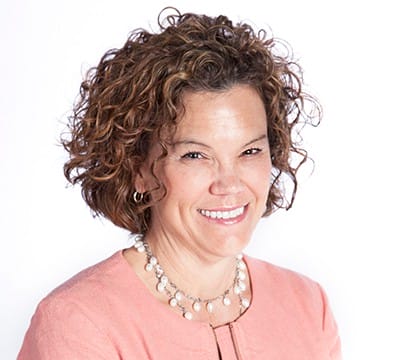
By Diane Reinhard
It goes without saying that we’re all facing tough times right now, especially in the healthcare industry. There is a lot of uncertainty related to COVID-19, as well as current political and social unrest. I know I feel it, and I’m sure the leaders of other healthcare organizations feel it, too.
Part of being a leader is staying calm and being the person others look to for guidance in uncertain times. And while I’m not sure I always have the right answers, I try my best to be authentic and share the answers that I believe are right at the time, given the information I know and my expertise as a nurse leader. But it doesn’t always mean I’m not worried and feeling uncertain myself.
These past few months have made me think about the fact that resiliency – the ability to withstand or recover from difficult situations – is one of the most important aspects of being a strong leader. Whether it’s continuing to try after being rejected for that first leadership role, or having others not believe in you or dealing with a crisis, resiliency is a critical skill for all leaders and aspiring leaders.
There are several stages of leadership that require resiliency:
Pursuing a Leadership Role
The first and most important lesson that people aspiring to secure a leadership position should know is that nobody is going to just give it to you. Most people take the path of management, then leadership. By putting in the work in a management role and demonstrating that you are not only capable of management but that you are able to think about long-term strategy, you will likely help your chances of moving into a leadership role. In many environments, you have to be doing the job before you get the job – which is where resilience comes in.
It May Not Happen on the First Try
Here’s the sticky thing about pursuing leadership: you probably have to put yourself out there more than once or twice before you land a position.
If you don’t get the job or the promotion, it doesn’t have to be extreme. Each lost opportunity presents an amazing chance to learn and grow. Obviously, it’s important to ask for feedback to understand where your skills and experience didn’t match up to the role and find ways to fill in those gaps. Don’t let a failure define you.
At the same time, I have found that enlisting a mentor is a great way to help bridge one’s knowledge, skills and experience needed to be a successful leader, as well as learn some of those required softer skills. Better yet, find someone outside of your industry. You can learn a lot about leadership from someone who faces very different challenges, but their approach to solutions could be helpful for your career, too.
Join leadership organizations. There are so many benefits to being part of a larger group of people who lead different types of companies. For me, this helped get me out of my own head after being turned down for a promotion I had pursued and helped me realize that the picture is bigger than what I’d painted for myself.
Resiliency After Landing the Job
Clearly, it takes a lot of resiliency just to get to a leadership role. But it doesn’t end there. Once you are a leader, the world will shake under you at some point – if not several times.
I was told upon being offered a leadership position by the person who held the position before me that she fully expected me to fail. I spent the first six months of that job feeling I was living in a fishbowl. Luckily, I had a colleague and confidant who gave me the great advice to just let people know who I really am. I decided that if I was going down, I was going to do so giving everything I had to make my employer succeed.
I didn’t fail, and looking back, I realize how strong that situation made me. It didn’t happen overnight, and I had a support system in my colleague. I also had the confidence and determination to put my stakes down and stay strong when I could have easily walked away thinking the cards were already stacked against me. It’s important to remember that leadership is never done alone.
Whether it’s a situation like that – or a global pandemic – something will happen to every leader that they will have to overcome. Your steady reactions and the grace with which you manage these issues – your resilience – will define you as a leader.
Diane Reinhard is vice president of Patient Care Services and Chief Nursing Officer of Craig Hospital.
The Editorial Team at Healthcare Business Today is made up of skilled healthcare writers and experts, led by our managing editor, Daniel Casciato, who has over 25 years of experience in healthcare writing. Since 1998, we have produced compelling and informative content for numerous publications, establishing ourselves as a trusted resource for health and wellness information. We offer readers access to fresh health, medicine, science, and technology developments and the latest in patient news, emphasizing how these developments affect our lives.








